Most homeowners take electricity for granted. Our daily routines depend on electricity for almost everything we do, yet rarely do we think about our decisions and activities that can compromise the safety of electrical use in the home.
According to the National Fire Protection Association (NFPA), faulty or damaged wiring and related electrical equipment cause 69 percent of electrical fires in the home, followed by lamps, light fixtures, cords, plugs, transformers, and other power supplies.
The following recommendations include some common sense precautions that can help minimize the risk of electrical related injuries and fires and keep you and your family safe.
Know When to Call an Expert
Improperly installed wiring or equipment can cause electrical shocks or fires. While it’s tempting to try to pull from all that HGTV-knowledge you’ve gained, you should always let a licensed electrician deal with electrical issues. NFPA recommends that you should call a licensed electrician if you are experiencing:
- Frequently tripping circuit breakers
- Discolored or warm wall outlets
- A burning smell when operating an appliance or electrical equipment
- Sparks from an outlet
- A tingling feeling when touching an electrical appliance
- Flickering or dimming lights
Breaker Panels
If you do decide you need to deal with electrical issues, you’ll likely need to cut the power at the breaker box. To ensure the safety of anyone accessing the panel:
- Confirm that all circuits/breakers are properly labeled so that the correct circuit can be quickly shut down in an emergency.
- Keep children away from breaker panels; always make sure the panel cover is in place, and door closed.
- All available slots in the panel should be occupied by a breaker or a filler-cover.
- Avoid situations that could expose the breaker panel area to water.
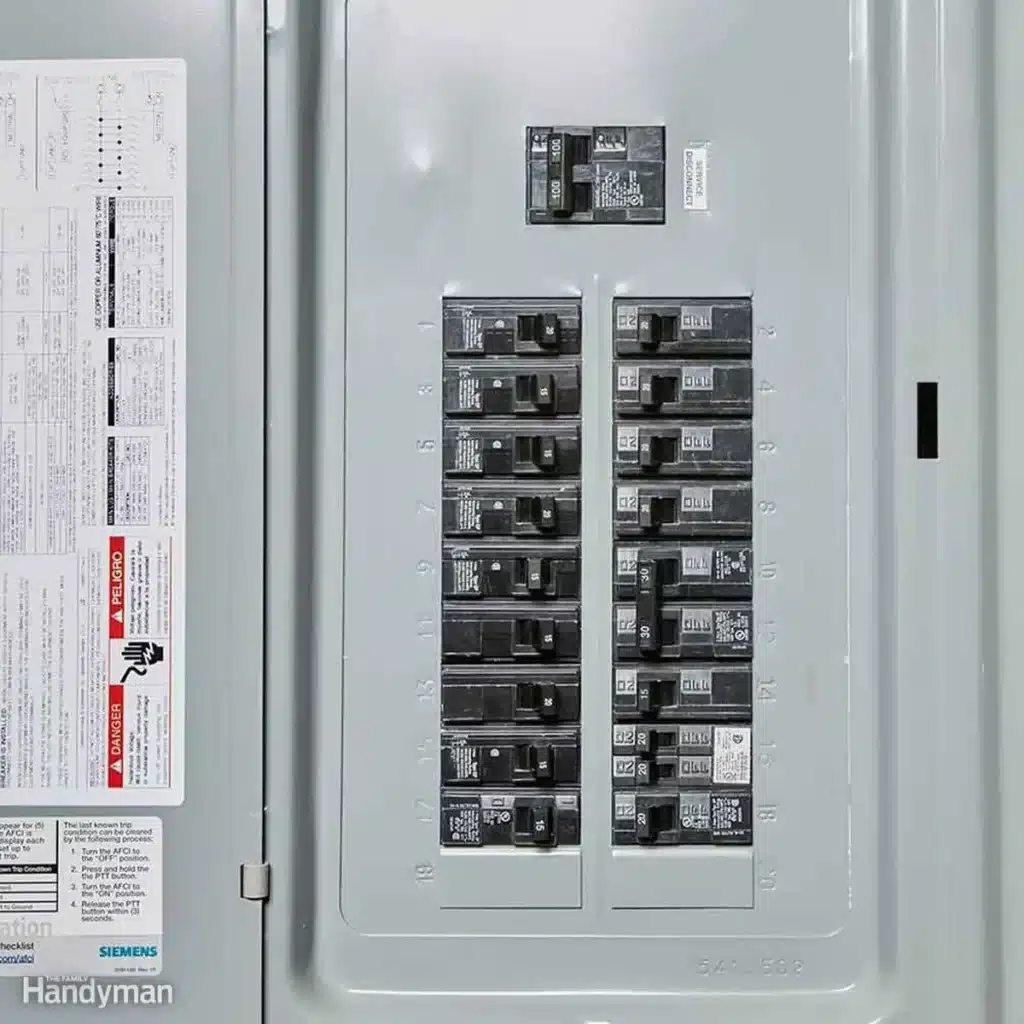
Appliances and Devices
- The National Fire Protection Association (NFPA) recommends that you only plug one “heat-producing appliance (such as a coffee maker, toaster, space heater, etc.)…into a receptacle outlet at a time.”
- Major appliances (refrigerators, dryers, washers, stoves, air conditioners, microwave ovens, etc.) should be plugged directly into a wall receptacle outlet, as opposed to using extension cords or power strips.
- Make sure power cords are not run under carpets or rugs, where the friction of being walked over and rubbed against can cause damage and potential fire hazards.
- Keep electrical equipment dry and away from potential exposure to water, such as sinks, showers, aquariums, and potted plants.
- Provide proper space around appliances for air circulation to avoid overheating. Avoid running electrical equipment in enclosed cabinets.
- For appliances with exhaust fans, clean dust, and debris regularly to reduce the chance of overheating and potential electrical fire hazard. This will also prolong the longevity of the equipment and decrease electricity usage.
- Place space heaters only on a stable surface and avoid proximity to combustible materials.
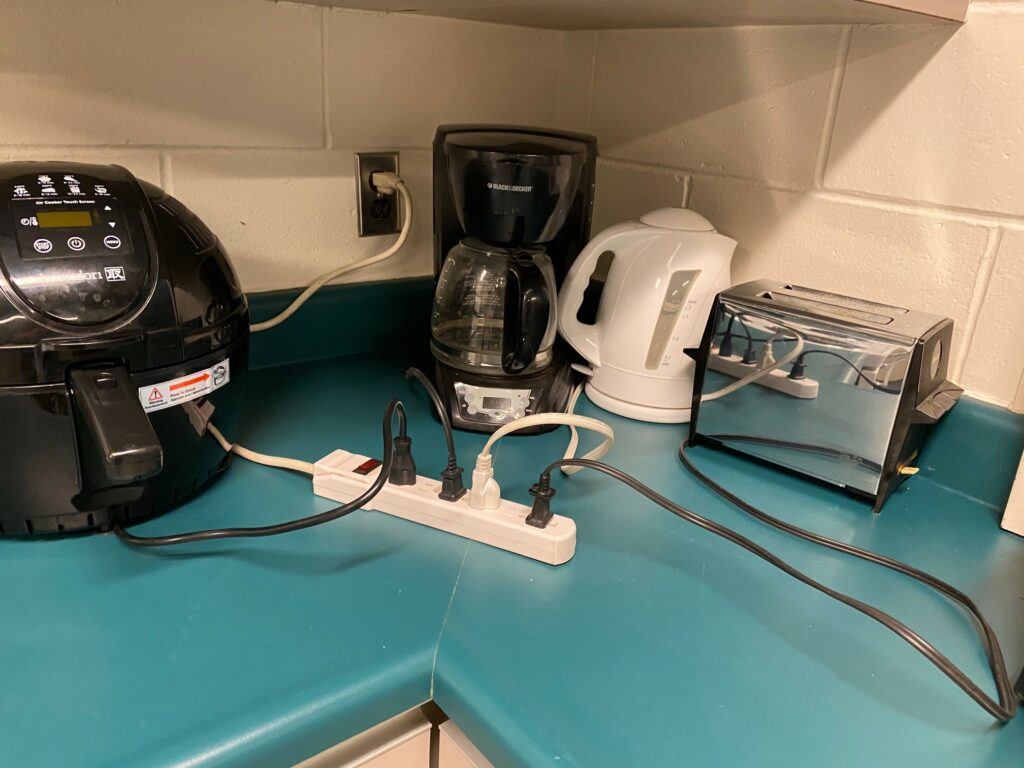
Outlets
- If you have young children, tamper-resistant receptacles or outlet covers are invaluable for protecting them and their curiosity from playing with an outlet.
- If you are constantly using power strips or other outlet expansion devices, you are creating a potentially unsafe situation. Try to distribute devices over several outlets or consider having an electrician add additional outlets.
- Outlets should be cool to the touch. Periodically feel the outlets in your home. If you find a warm or hot outlet, shut the circuit off at the breaker box and call an electrician immediately.
- Smart plugs can be used to monitor outlet power loads and even shut off appliances should an outlet begin to overheat.
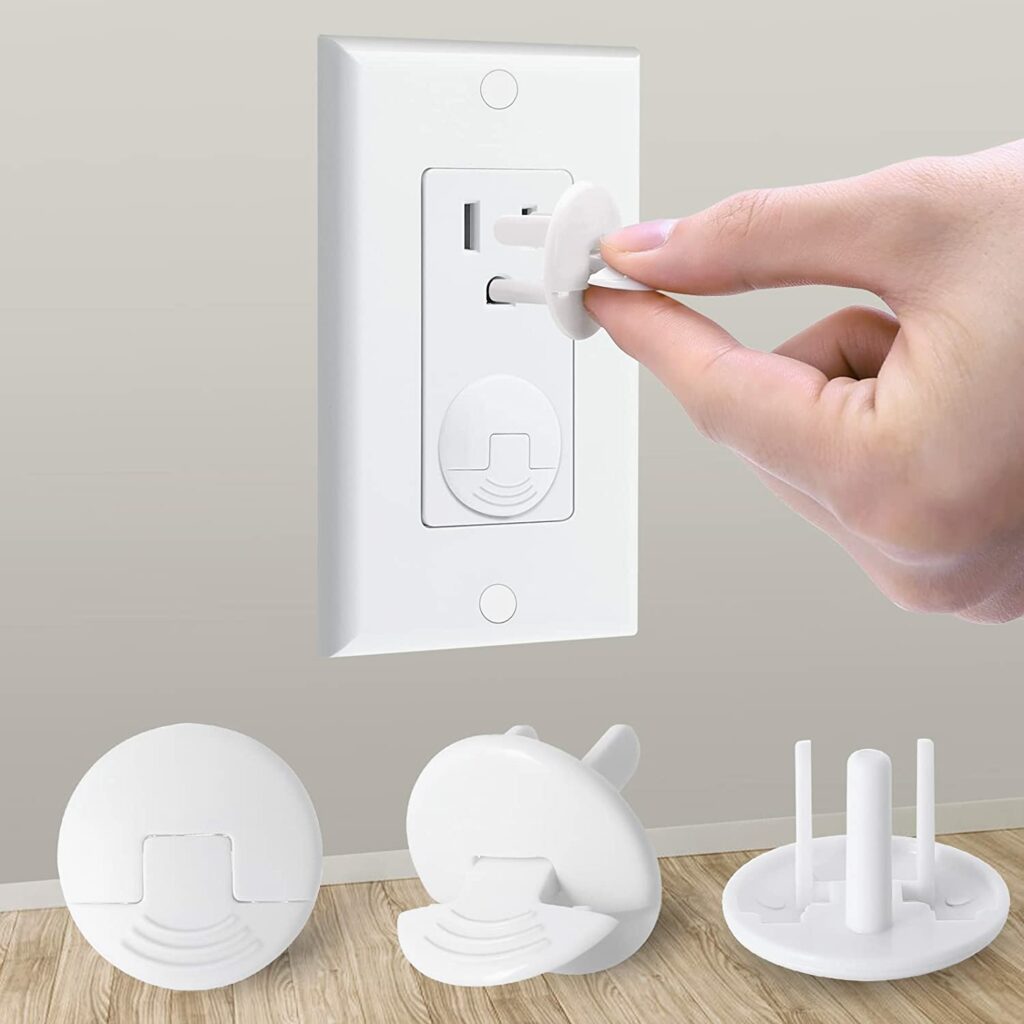
Extension Cords
- An extension cord should be a short-term solution when you need electricity in a spot where there’s no accessible outlet. Avoid long-term use by either moving the device closer to an outlet or having an additional outlet placed where you need the item.
- Avoid running extension cords across doorways or under carpets or furniture. Also, avoid running across a hot surface or water.
- Keep stored extension cords away from children and pets.
- Avoid wrapping cords tightly around objects; this can stretch the cord or cause overheating.
- All power and extension cords should be checked regularly for signs of fraying and cracking, and they should then be repaired or replaced as needed.
- When purchasing an extension cord, consider the electrical load it will carry and that it is appropriate for the equipment it will be used for.
- Extension cords that are used outside should only be ones specifically made for outdoor use, and always check them for damage before and regularly during use.
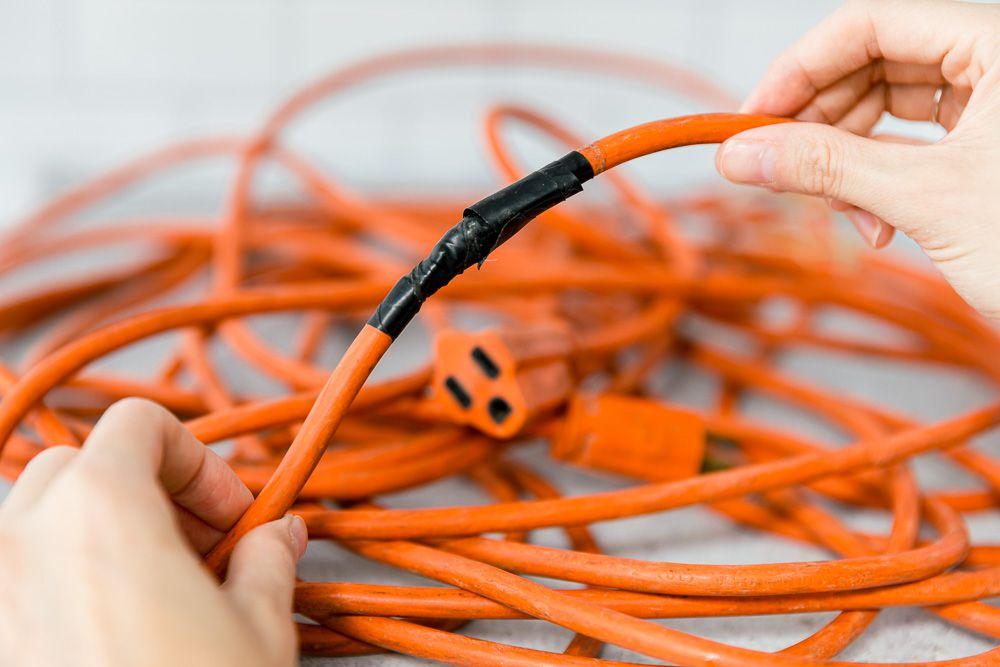
Arc-Fault Circuit Interrupters
An arc fault occurs when loose or corroded wiring connections spark, orarc, between metal contact points. According to the Electrical Safety Council International, arc faults cause more than 28,000 fires in U.S. homes every year, killing and injuring hundreds of people. Arc-fault circuit-interrupters (AFCI’s) help prevent these types of fires.
- For new homes, the 2020 NEC® requires AFCI protection is required for all circuits supplying outlets or devices installed in residential kitchens, family rooms, dining rooms, living rooms, parlors, libraries, dens, bedrooms, sunrooms, recreation rooms, closets, hallways, laundry areas, or similar rooms or areas.
- For homes built prior to 2020, it’s recommended that AFCI protection be installed by a qualified electrician to reduce the potential of arc fault related fires.
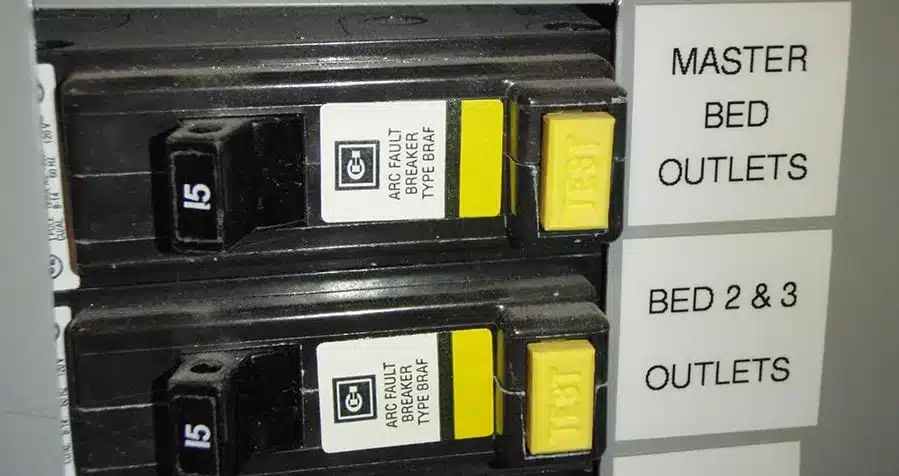
Ground Fault Circuit Interrupters
A ground fault circuit interrupter (GFCI) is designed to help prevent electrocution. If an individual begins to get a shock related to a device powered via a protected outlet, the GFCI senses this and cuts off the power before he/she can get injured.
- GFCIs are generally installed where electrical circuits may accidentally contact with water, such as in kitchens, bath, laundry rooms, garages, or home exteriors.
- It’s recommended that GFCI protection be installed by a qualified electrician to reduce the potential of electrical shocks.
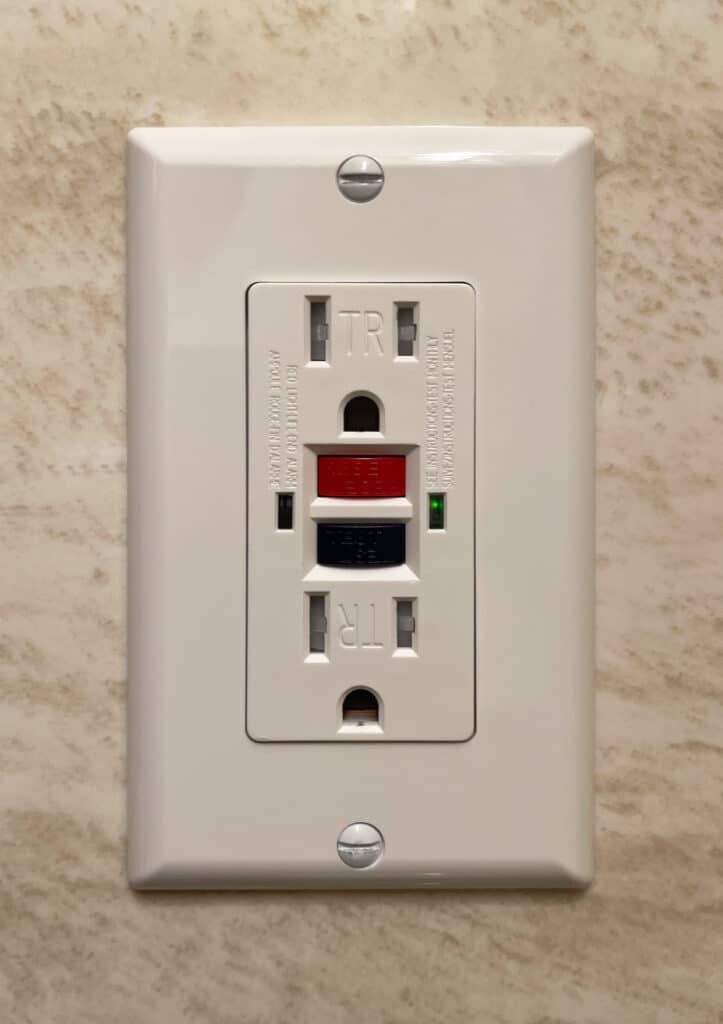
Smoke Detectors
- Electrical fires often smolder before breaking out into open flame. According to the U.S. Fire Administration, most electrical fires occur between midnight and 6:00 a.m.
- Installation and maintenance of smoke detectors can help alert you to the dangers of electrical fires.
- The NFPA requires a minimum of at least one smoke detector in every bedroom and one outside of each sleeping area, AND, one on each level of the house.
- Smoke detectors should generally be replaced every 10-years.
Fire Extinguishers
- Every home should have a fire extinguisher that’s rated for electrical fires.
- Water conducts electricity and should never be used to extinguish an electrical fire.
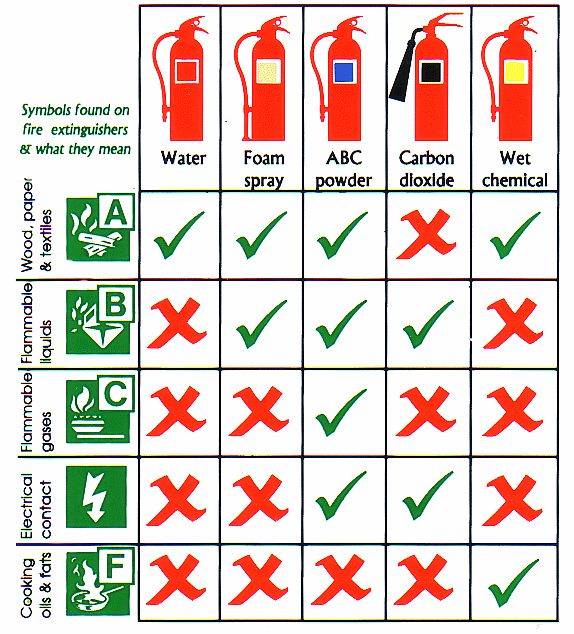
Outdoors
- Use caution when trimming trees that are in proximity of overhead power lines.
- Never touch a fallen power line or anything the powerline is touching. If the fallen power line is anywhere near water, do not approach or drive through it.
- Never swim in your pool before, during, or directly after thunderstorms. If you feel any kind of “tingling” sensation when you swim, exit the pool.
- Be cautious if underwater lights in a pool are out or are flickering, signs of a possible electrical issue.
- Make sure electrical equipment, appliances, and cords are at least six feet away from pools or other bodies of water on your property (“Electrical Safety Around Water”).
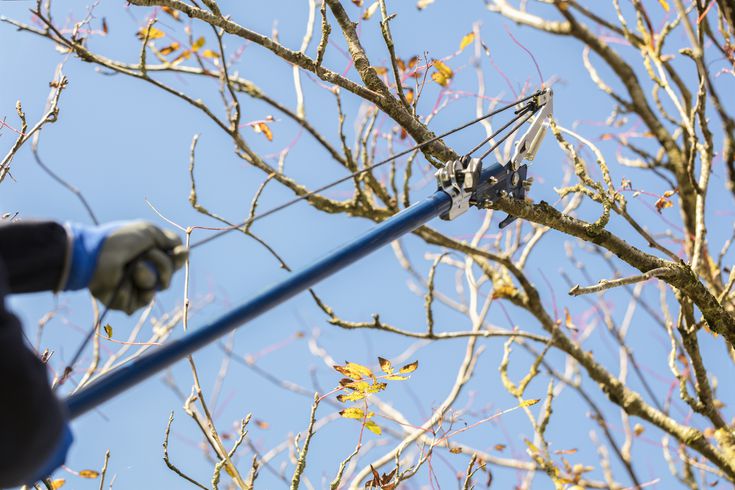
These few simple precautions can help keep your home and family safe from serious electrical-related hazards. When in doubt, call a licensed electrician. An Acuity “Home Maintenance Inspection” can help identify these and other issues – schedule yours today!


